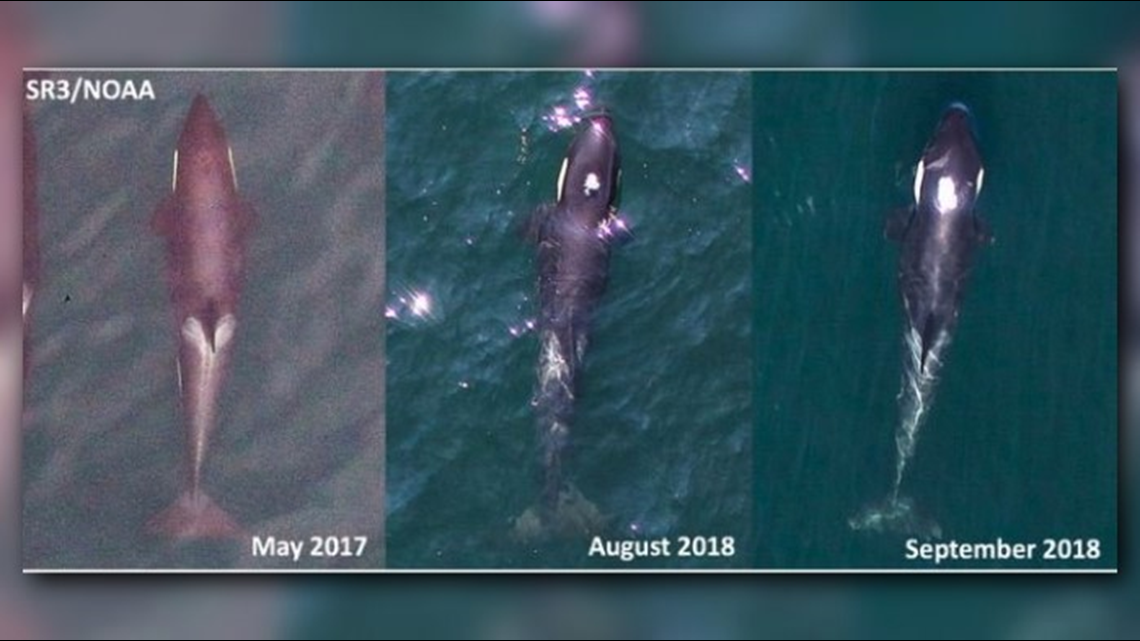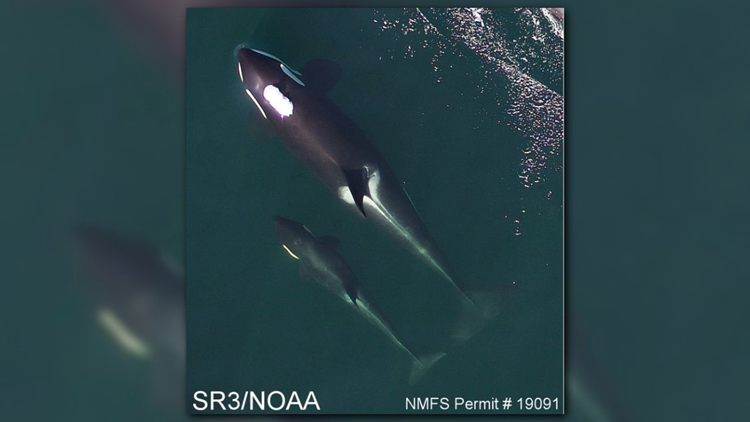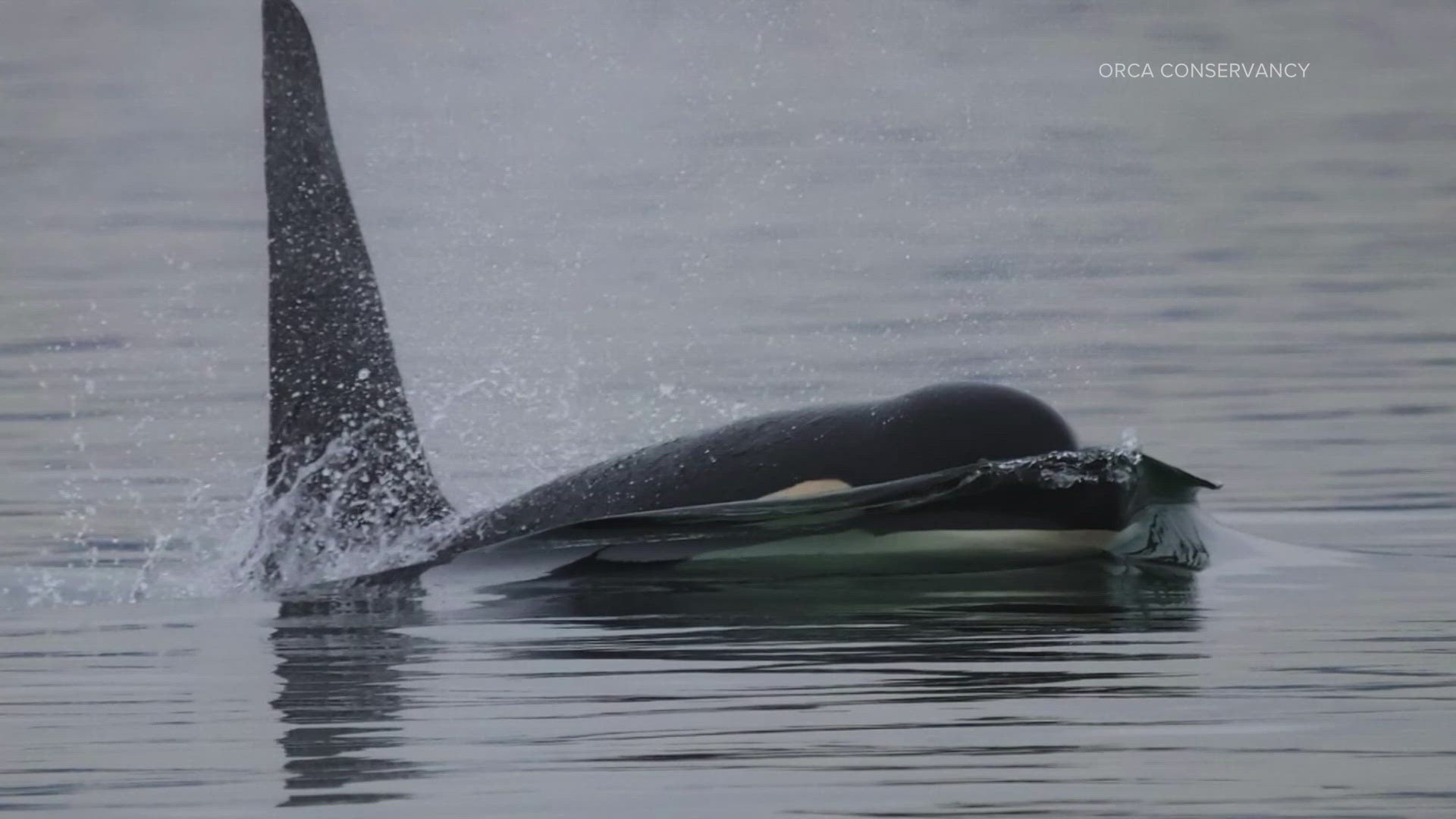Scientists have growing concern for ailing orca J50. New drone images released Monday show a very thin profile and loss of fat behind her head.
The Southern Resident killer whale is younger than 4 years old. She has been observed in failing health this summer. J50, also known as Scarlet, has lost 20 percent of her body mass and developed a depression near the base of her skull, which indicated severe fat loss and malnutrition.
National Oceanic and Atmospheric Administration (NOAA) shared the images in conjunction with SR3. The photos were taken by a custom-made research drone, which allows scientists to non-invasively monitor J50's condition.


NOAA response teams caught up with the J Pod Friday off the south end of San Juan Island and observed J50 often lagged about a half-mile behind the rest of her orca family at times.
"New veterinarian observations do not indicate J50's body condition is improving. Unfortunately, they did not succeed yesterday in providing a dose of dewormer, but they hope for favorable conditions today," NOAA West Coast officials said on their Facebook page Sunday.
NOAA scientists plan to work with their Canadian counterparts with the Fisheries and Oceans Canada (DFO) to evaluate options on what to do next to help J50.
"Our highest priorities are to do all we can to ensure J50 remains a contributing part of the Southern Resident killer whale population and to prevent any harm to her and her family under any potential response scenario. That is the bottom line," said NOAA.
Scientists believe J50 may have a parasite, based on lab analysis of fecal samples collected several weeks ago.
Multiple attempts have been made in recent weeks to improve J50’s health, including distributing live salmon and giving medication.
Scientists were able to give a round of antibiotics to J50 on Labor Day after researchers feared she may have been dead. However, DFO officials were unsuccessful in delivering another round of antibiotics to J50 and deworming her due to heavy winds and unfavorable conditions on the water.



